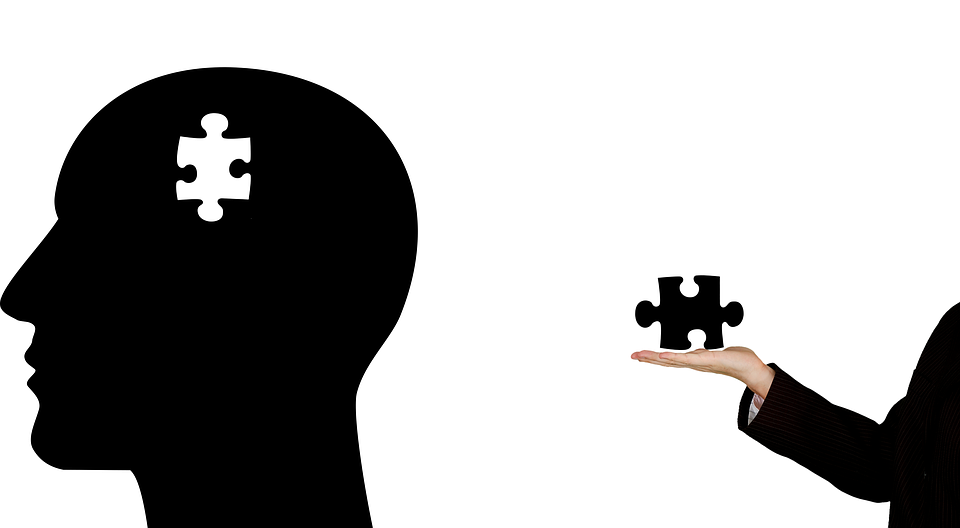A few days ago I made a post about my thoughts on the subject of creepy clowns, the phobias and the apparent addictions we seem to have with them.


Today, I want to share with you another phobia, which could be seem as even more inexplicable than the clown one.
But first...
Do you know what it is a panic attack?
A panic attack is an intense wave of fear characterized by its unexpectedness and debilitating, immobilizing intensity. They often strike out of the blue, without any warning. There may be no clear reason for the attack. They may even occur when you're relaxed or asleep. | Source

It is nothing more than an intense feeling of anxiety along with symptoms like tachycardia, sweating, stomach problems, feeling of not being able to breathe or of dizziness, as well as exaggerated trembling of the upper and lower extremities.
What is agoraphobia related to?
As regards to the origins of this phobia, it is related to a sense of panic or fear caused by public places with huge agglomerations. For example: music festivals or sports matches.
Since it is closely related to panic attacks, this indicates that it could be concurrent attacks, that is to say, when one happens it is probable that the other will happen as well.
Some of the fears that people with agoraphobia are related to are the risks of feeling dizziness, fainting, or doing something stupid in public ... Among many others.
What can cause a person to have agoraphobia?
In most cases, the disorder occurs because previously the person has been subjected to an unpleasant or even traumatic event that has left sequels in their mind, and this makes them recall similar situations when encountering similar circumstances. Some of these traumas can come from robberies inside a bank, or to have experienced sexual abuse during childhood. The treatment that seems to be the best in healing the person suffering from this phobia is cognitive behavioral therapy, which consist in having the patient facing the situations that caused the fear in the first place, on an ongoing way, gradually increasing the intensity.
Cognitive behavioral therapy (CBT) is defined as:
CBT is a talking therapy that can help you manage your problems by changing the way you think and behave. | source

CBT is based on the concept that your thoughts, feelings, physical sensations and actions are interconnected, and that negative thoughts and feelings can trap you in a vicious cycle. | Source
Clearly at all times the patient is accompanied by the therapist, because if a crisis occurs in the middle of the therapy, this could damage and significantly slow the treatment.
How does an agoraphobic behave?
The person suffering from this disorder is at all times concerned with avoiding any type of situation that can potentially cause them anxiety , like things as normal as going to the cinema, going to the disco, traveling, being in public areas or busy places.
If this disorder is not controlled in time and the person who suffers it does not ask for timely help with a professional, it can become a cause of a daily negative dynamic in which the person will begin to stop leaving home, will not go to work, will not hang out in public places, all of this with the only purpose of avoiding putting him/herself in danger of having to face a situation that might cause the intense fear which is unable to control.
We need to take into account that people suffering from this phobia might in fact be totally aware that the fear they are feeling are completely unjustified since there is no real danger, yet they are unable to control this emotion, it is fair to say this must be a very frustrating circumstance to be in. Probably, this reasoning is totally governed by our emotional side which is guided by the warning circuit that all human beings have, that warns us when something is not right and we should run away (the typical fight or flight response). However, in these people that circuit seems to be too sensitive and does not recognize between real or imaginary danger.

Some of the symptoms of this phobia are:
- Rapid heart rate
- Trouble breathing or a feeling of choking
- Chest pain or pressure
- Lightheadedness or dizziness
- Feeling shaky, numb or tingling
- Excessive sweating
- Sudden flushing or chills
- Upset stomach or diarrhea
- Feeling a loss of control
- Fear of dying | Source
Obviously in each person the symptoms can different,this also depends on the intensity of the panic attack that person experiences at that particular moment. At the same time that the physiological symptoms happen, so do the negative or intrusive thoughts, making the person in question more nervous because at certain moments he/she might feel that the situation is getting out of hand and starts to think about catastrophic outcomes, like having the constant idea of their own death.
Likewise, these intrusive thoughts as their own name indicate, creep into the mind of the affected, and the person can not do anything to control or eliminate them, because these persist worsening the patient's physical symptoms.
What is the treatment for agoraphobia ?
The treatment basically consists in facing our fears , facing in a controllable and monitored way, the problem that generates panic in the person, with exhibitions where the person comes into direct contact with the situation, object or animal that causes the fear.
Obviously this is a treatment that is applied in a progressive way, so the patient can gradually increase its resilience and eventually overcome its traumas.. It is not good to put the patient to a lot of tension because in case of a crisis it will be very difficult to proceed with the treatment and in some way we will be stagnating in the recovery.

Do not forget that exposure towards the problem are a very hard step and these have to be as long as possible so that the patient gets used to it and therefore, loses the fear of the object or situation in question.
No less important is to indicate that for this to work, like all therapies, has to be fully accepted by the patient. That is, he/she has to give full consent and be totally convinced about the commitment required to change the problem that in some way incapacitates them in many daily life situations.
Conclusion
Every phobia is a very delicate subject, because it is always an irrational and exaggerated reactions towards something that is totally normal or at least, that doesn't involve a real risk. It is a mental sickness that must be treated by the corresponding professional, and requires the total commitment of the patient in order to really defeat this difficult condition.
Since, even people who suffers from a phobia are aware that their fear is irrational, it can be difficult to be totally open about this, because having irrational thoughts is not something any person would be proud of.
This is why I believe that if we know someone who suffers from a phobia, the best thing we can do is to adopt a supportive attitude and try to help in any way we can, so that this person can one day overcome his unjustified fears, and start living a better life.
Do you suffer or suffered from a phobia? If so, which one? Did you managed to overcome it?
Do you know someone who suffers from a phobia? Have you thought about helping this person

References
helpguide - panic attacks and panic disorders
National Health Service - Cognitive behavioural therapy (CBT)
Mayoclinic – Agoraphobia symptoms
Image sources
1 , 2 , 3, 4 , 5

If these titles sound interesting to you, I assure you the articles will be even better!

Mindfulness can help us in slowing down and avoid crashing
Phobias and addictions: The clown case
Today's lesson: our days have 24 hours thanks to Sumerian mathematics
The story of my premonition. | SWC contest by @jerrybanfield
Today's lesson: What does 1 year means? What are its origins?
